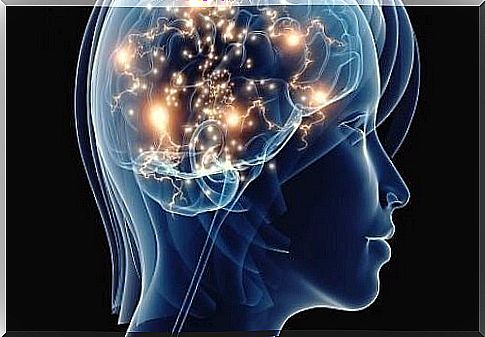Untreated Depression And Neurodegenerative Effects

Untreated depression, the chronic one that accompanies us for years like a dark shadow, can leave a mark on the brain. Recent studies indicate that the alteration caused by this psychological condition affects structures such as the prefrontal cortex, influencing our ability to make decisions, solve problems, reflect, etc.
Neuroinflammation, less oxygen supply to the brain, sudden changes in the production of neurotransmitters … The processes that accompany some disorders, such as major depression, can reduce the functionality of many brain structures, leading to a neurodegenerative process.
However, these changes only become evident if the patient experiences this disorder for between 9 and 12 months.
In light of this, the questions that would naturally arise are the following: why is someone inclined not to treat their depression? What causes a person not to ask for professional help to cure their suffering? Obviously there is no single answer to these questions. In fact, we are often not even able to fully define the complexity of this mood disorder.
Some think they can never get better. The disease itself acts as a shield and makes it impossible to ask for help. Others are resistant to treatment. Still others are prejudiced about psychological therapies, don’t trust or will never admit they have a problem.
Without forgetting the people who have neither the resources nor the social support to be able to ask for help. Living with untreated depression is sadly common and the effects of this reality are often immense.

Untreated depression and its consequences
Most of us know what depression is, because we have suffered from it in the past or in the present, from the experience of a close person who has traveled in this exhausting universe. We are well aware of its effects on mood, physical and even social implications. But most of us may still be unaware of its effects on the brain.
An interesting study by Dr. Victor H. Perry, professor of neuropathology at the University of Southampton, UK, tells us about a surprising and extremely important fact. People with major depression have been shown to have a high risk of carrying the condition over the long term. Relapses are often frequent, so there are patients who have been dealing with this disorder for decades.
Untreated depression or depression with a persistent effect produce a neurodegenerative action. Let’s see in more detail what it is.
Several areas of the brain shrink
In a study conducted by Dr. Dilara Yüksel, of the University of Istanbul, it was possible to demonstrate the alteration generated by severe depression in the brain over 3 years in case of non-treatment (or non-reaction to treatment ). The most surprising consequence is the reduction in the size of several brain structures, such as the following:
- Frontal cortex
- Brain thalamus
- Hippocampus
- Amygdala
These areas are directly related to memory, emotion processing and executive functions (problem solving, attention, planning, ability to respond to environmental stimuli, etc.).
C-reactive protein and inflammation
Untreated depression, in turn, has a biological effect: it increases neuroinflammation. Dr. Jeff Meyer, of the Center for Mental Health at the University of Toronto, Canada, led a 10-year research project with 80 participants. Half of them suffered from severe depressive disorder without ever having received treatment. The goal was to know what effects it had on the brain.
- A greater accumulation of C-reactive protein was detected in the brain areas listed above: frontal cortex, hippocampus, amygdala …
- This protein generates an inflammatory effect, since it opens up the possibility for the research of new pharmacological treatments for such specific cases.
Untreated depression and reduced oxygen supply to the brain
These data are undoubtedly of considerable interest. The study conducted by the team of Dr. Tomohiko Shibata at the University of Tokyo shows that mood disorders, such as untreated depression, result in mild hypoxia. In other words, a psychological condition such as sustained major depression results in less brain oxygenation.
This causes fatigue, upset, concentration problems, migraines… The effect is overwhelming. To contain these symptoms, hyperbaric chambers are even used.

To conclude, major depression can have a highly damaging effect on brain health. The very effect of the disease can alter cognitive function and this, undoubtedly, contributes to increasing discomfort, in addition to cognitive disturbances and greater resistance to treatments.
In recent years, new techniques have emerged. For example, transcranial magnetic stimulation (non-electroconvulsive) has been shown to significantly improve the well-being of these patients. Magnetic pulses directed at these problem areas improve their biochemistry and connectivity. According to experts, it’s like “resetting” the brain. We look forward to new and promising progress.









